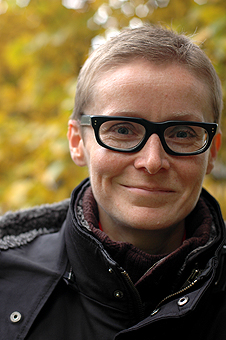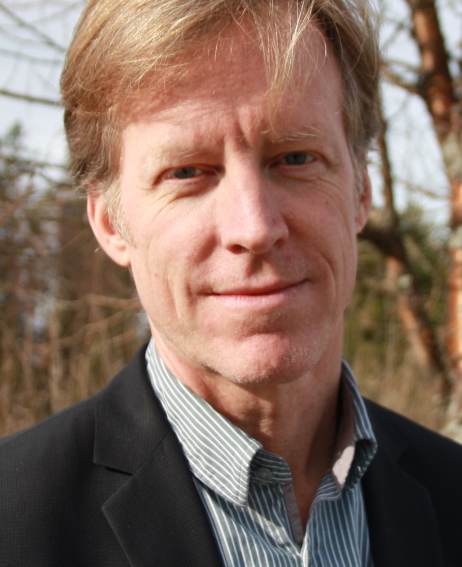Offhand remarks with big consequences
Despite formal rights and gender equality measures, women in academia still hit their heads against a wall, according to Associate Professor Randi Gressgård.
”There is a kind of differential treatment that isn’t explicit, but that results in a lack of equal opportunity for women and men – and for the majority and minority population,” she states.
Microaggression against women and minorities is a daily phenomenon in academic institutions, writes Randi Gressgård in the latest edition of the journal Nytt Norsk Tidsskrift. In her article on microaggression, Gressgård argues that gender equality measures do not alter the mechanisms that prevent women from enjoying the same opportunities as men to win the competition for academic positions.
Automatic, everyday indignities
Randi Gressgård, an associate professor at the Centre for Women’s and Gender Research at the University of Bergen, describes microaggression as informal statements and actions that identify and link people with stereotypical ideas about ethnicity, race, gender, sexuality or other social dividing lines. Because the intention is usually not to offend, microaggression is different from explicit forms of discrimination like racism and misogyny.
“As a general rule, the indignities occur without explicitly naming the differentiating markers, such as gender. Microaggression refers to everyday statements and actions that indicate an established social hierarchy and confirm established stereotypes,” writes Gressgård in an email.
She emphasizes that this involves strengthening established stereotypes and social markers, thus marginalizing certain groups, but it does not entail conscious techniques to dominate others.
“Microaggression can be seen as an expression – or a symptom – of existing social dividing lines, which in turn helps to maintain them. The everyday indignities point to a subordinate relationship, even though gender, for example, is not mentioned and the intention is not to offend anyone,” she continues.
Oversensitive and paranoid
It is precisely for this reason that it may be difficult to bring the problem to light, according to Gressgård:
“It is typical that insulting remarks or actions are perceived as insignificant by those who are not affected by them and that the cause of the conflict is attributed to those who point out the problem.”
“The person who chooses to bring up the problem is usually perceived as oversensitive, paranoid or difficult. It may be an additional burden for those it concerns, especially in academia, where norms for rationality are paramount.”

Women and minorities are especially affected in research institutions because they are physically different from the norm in that environment, Gressgård believes. She does not think that anti-discrimination laws are any guarantee that informal differential treatment will not occur to one degree or another.
Ineffective gender equality measures?
Anti-discrimination measures can sometimes work as intended, but they can also help to reproduce the problem rather than decrease inequalities, according to Gressgård. Because informal discrimination falls outside the framework of formal measures, the problem will not be noticed, and the problematic dynamic is maintained.
“Increasing the number of women and minorities in academia is important, but it is not enough. It is not automatic that norms will change if the numbers balance.”
“This is why I believe we should look more critically at the informal reproduction of social dividing lines as expressed in microaggression. Academia is a key arena for reproduction of social inequality in society, which is not caused by given gender and cultural differences, but by established academic cultures that seldom or never are problematized.”
Gressgård emphasizes that she does not propose discontinuing gender equality measures, but it is just as crucial to shine the spotlight on informal power mechanisms that help to reproduce social dividing lines within academic institutions.
Several advantages of gender quotas
The chair of the Committee for Gender Balance in Research, Curt Rice, thinks that gender equality measures, such as quotas, could create false perceptions about poorer quality in academia. This may lead to microaggression against women and minorities, in part by raising doubts about their competency.
By the same token, he points out that there are several misunderstandings surrounding quotas and that attitudes about this must become more nuanced. In the next edition of Nytt Norsk Tidsskrift, he argues that quotas are an important instrument for fighting discrimination rather than maintaining the status quo.

“It’s important to confront what has almost become accepted as true: that quotas result in lower quality than if there had been no quotas. The idea that quotas by definition mean that the person hired is less qualified is incorrect, and there is research that supports this,” he says.
“It’s been shown that using quotas in job announcements attracts more highly qualified women. It impacts the applicant pool and results in more well-qualified female applicants,” he explains.
However, Rice uses balanced management groups as an example of how individuals can be made responsible for the supposed characteristics of an entire group, which he regards as a common type of microaggression.
”If we assume that gender-balanced management groups offer more types of management styles, the women in the group become responsible for the different, alternative style of management. The responsibility falls on the minority. This can definitely be a burden for the individuals affected,” he says.
Important role models
Rice partly disagrees with Gressgård’s contention that norms do not automatically change when the numbers balance.
“We can’t take for granted that measures will lead to change, but there is good reason to believe that they do. As an example, we know something about the effect of role models. Measures that increase the number of visible role models may lead to long-term attitudinal change. I believe, for instance, that women who present papers at conferences may have an impact on young women in the field.”
Rice has no doubt that various gender equality measures have a positive effect and will result in attitudinal change in the long term.
“With regard to gender equality measures and the effect they have or don’t have, I believe that forcing change can lead to cultural changes. It is unthinkable in Norway today to appoint a committee that does not have reasonable gender balance. It is unthinkable to run for election with only a female team or only a male team. This is a result of intervention, management and measures over many years that have required gender balance,” he says.
Must acknowledge that it exists
Rice agrees with Gressgård that there is informal discrimination or unconscious biased thinking which falls outside the reach of formal gender equality and anti-discrimination measures. He thinks Gressgård identifies a genuine problem for many people in working life.
“As a white man, I must be careful when referring to other people’s experiences. I don’t know the extent of the problem, but I don’t doubt there is one. Women probably hear sexist jokes and comments that men never have to deal with in the course of a normal work day,” says Rice.
“In some cases it’s so common that women hardly notice it, but it can affect how a person views herself over time,” he says.
Translated by Connie Stultz.
Associate Professor Randi Gressgård has written the article Å stange hodet i veggen: Mikroaggresjon i akademia (“Hitting one’s head against a wall: Microaggression in academia”), published in the latest edition of the journal Nytt Norsk Tidsskrift. Gressgård explains the term “microaggression” as informal statements and actions that link people with stereotypical ideas about ethnicity, race, gender, sexuality or other social dividing lines.
In the next edition of Nytt Norsk Tidsskrift, Professor Curt Rice, chair of the Committee for Gender Balance in Research (the KIF Committee), writes a response to Gressgård’s article.
The next edition will be published on 30 May 2014.

